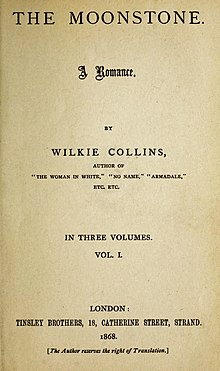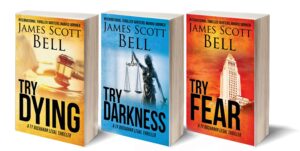Happy Saturday, TKZers. Let’s welcome a brave author who has provided us with the opening page of a fantasy novel. I’ll have comments afterward, and then you can weigh in with your thoughts as well.
***
Chapter 1
‘Are you sure you know what you’re doing?’ Eneya said in a hushed voice.
She peaked from behind a glowing statue carved of ruby stone and scanned the bright temple. There was still no one in sight, but she didn’t expect this to last.
‘I told you, I’ve been practising,’ Agalik huffed.
He blew air up to get his blond fringe out of his eyes as he crouched by a door. The lockpicks in his hands clanked and rattled as he explored the keyhole. With a sharp snap, the door opened.
‘I can’t believe this,’ Eneya snickered, and the two sneaked inside. ‘This city won’t be safe with you unleashed like this.’
‘I don’t intend to make it a habit. Funny how to become a good person who behaves normally, I first need to break rules like a criminal.’
‘Striving to avoid misery and shame is barely a crime in my opinion,’ Eneya said. ‘Besides, if we heal your condition now, your family will never complain from you again.’
Agalik and Eneya closed the door behind them and blinked a few times till their eyes adjusted to the dim lighting. Before them stretched the long, dusty rolls of stone bookshelves in the underground, windowless library. Agalik stepped forward, both thrilled and terrified of being here.
‘Well, come on then!’ Eneya grabbed him by the hand and pulled him inside. ‘Let’s find what we need before one of the oracles shows up!’
As they made their way between the stone bookshelves, several fiery orbs the size of oranges chased and followed them, casting a spotlight. Agalik waved a hand and said, ‘Can’t we make these things leave us alone?’
‘Not unless you’re a fire sorcerer and control them. They’re just here to give us light. Ignore them. So, what are we looking for again?’
Eneya’s caramel-coloured fingers traced the fine leather spines of the forbidden tomes they weren’t meant to read.
‘Try and find any books on foreign curses. I’ll look up magical diseases,’ Agalik said.
‘Yes. Let’s pick up anything useful and get out. We can go to the palace’s garden afterwards. The Grand General won’t spot us there.’
‘What if she learns we’ve been here? What story do we tell?’ Agalik asked.
‘You leave that to me. I won’t let her swap you for a different grandson, I promise!’
***
All right, I’m back. First, my overview.
This looks to be a secondary world fantasy, with a high fantasy feel, meaning it’s set in another world where magic is common.
Eneya and Algalik are breaking into a temple in order to find a means to heal Algalik’s unnamed “condition’ in the temple library. We see magical floating torch-like creatures who follow our two characters, and Eneya is concerned about avoiding “the oracles.” We learn Algalik is the grandson of a prominent general in this city, and that he sees himself as having to commit a crime (breaking into a temple library) in order to become good. Once in the library, he tells his companion to pick up any books on foreign curses, so now we know he’s cursed.
So, we have two characters, striving to achieve a goal, in a scene which stays focused on the two of them.
From the way this plays out, I’m left with the impression that both are young, and not normally thieves, given they apparently didn’t rehearse the break-in.
This feels like it could be young adult, but equally could be an adult high fantasy, which can have younger main characters.
Plot: Breaking into a temple library to find a cure for a curse is a great hook, but there’s minimal tension here. Agalik picks the lock (surprisingly noisily to me) and they slip into the library, followed by floating magical light sources. Eneya is concerned about avoiding the oracles but we don’t learn what they are. Given the seeming gravity of this break-in, it’s surprising Eneya doesn’t recall what they are looking for. If this theft is very much a spontaneous action, we need to know that. Certainly that would explain Eneya’s snickering over Agalik using a lockpick, but assuming locks are common here, would she really be surprised? At the same time, she’s in a hurry to avoid the already mentioned oracles. The pair begin looking through the library for anything to do with solving curses.
Opening lines: The scene opens with dialogue. We often talk at TKZ about how dialogue can be an effective opening. “Are you sure you know what you’re doing?” does make us curious.
The curse is the reason for the break-in, and getting a better idea of what the curse is would increase tension, especially if it’s something manifesting physically in the victim, such as a possible transformation into a “monster,” a change in behavior etc. Showing the curse in action would be certainly complicate the break in.
One question with openings in general to ask yourself is, is this right door into the story? PJ Parrish’s post on that very topic is well worth reading. I think the current opening could work well, provided we have more tension and focus on the curse. That would provide a strong opening disturbance.
‘I told you, I’ve been practising,’ Agalik huffed.
He blew air up to get his blond fringe out of his eyes as he crouched by a door. The lockpicks in his hands clanked and rattled as he explored the keyhole. With a sharp snap, the door opened.
We had Agalik “huffing,” implying he’s annoyed. However, the next sentence has him in fact blowing his fringe (bangs) out of his eyes. I suggest writing Agalik said rather than huffed.
“Clanking and rattling” would be too loud for lockpick tools. Now, this is a fantasy world, and we need to be careful about applying Earth analogs to everything, so having this lock function more like an 18th century and later tumbler lock can work, as opposed to the “wards” commonly used, for example, in Medieval monasteries (https://en.wikipedia.org/wiki/Warded_lock). The sound of picking a tumbler lock might be soft clicking or soft metallic snicking sound, and then a louder click when the lock opens.
Point of view: The point of view varies in this opening. In the third sentence we are told, There was still no one in sight, but she didn’t expect this to last, which gave me the feeling we were in Eneya’s POV.
However, toward the end of this first page we read, Eneya’s caramel-coloured fingers traced the fine leather spines of the forbidden tomes they weren’t meant to read. This is from outside Eneya’s POV. (Also, unless her fingers can read via touch, the last part doesn’t make sense. If this is some sort of fantasy braille, then by all means show us the sensation of her fingers brushing the spines.)
At times the POV is camera eye or at best spare omniscient — mostly we see and experience the two characters from outside. We are told that Agalik is both terrified and thrilled.
While a full-on omniscient viewpoint would be an option, a deeper third person, seen through the eyes of one of these characters would place the reader much more firmly in this scene. It seems to be that Eneya is meant to be the main character, but I’m not sure.
Immersion: Giving us at least another sense along with sight and sound will make the story more immersive. How does those books spines feel to Eneya, for instance? What does the interior of the temple smell like? For example, is there the faint lingering scent of incense, or a burnt offering?
Dialogue: The dialogue does have an easy flowing banter, however, it suffers from expositional exchanges where the two characters are telling each other what they already know for the audience’s benefit. We’ve had a lot of discussion at TKZ about how to handle dialogue. This post by James Scott Bell gives excellent advice on handling exposition in dialogue. Elenya’s dialogue is fairly jokey while Agalik is more serious. Given he has a curse of some sort they are striving to find a cure for which involves breaking into a temple, Elenya’s humor feels misplaced, though this could be an opportunity for characterization to show when she’s nervous she hides it by making jokes.
Style note: British/Canadian spelling here—practising, colour etc., as well as British punctuation for dialogue–i.e. single quote marks to enclose dialogue rather than the American practice of double quotation marks.
A couple of errors I noticed: The word peeked in the second sentence is misspelled as peaked. Also, in the dialogue passage, ‘Besides, if we heal your condition now, your family will never complain from you again,’ it seems like from should be about.
***
Okay, TKZers, that’s my two cents. The floor is now open for your comments, feedback, and suggestions. Brave writer, thank you for your submission. I hope this proves helpful and you keep writing.







 It’s incredible how a designated workspace triggers the mind. For years, I had an office. As soon as I sat at my desk — headphones on, music cranked — my mind knew to write.
It’s incredible how a designated workspace triggers the mind. For years, I had an office. As soon as I sat at my desk — headphones on, music cranked — my mind knew to write.









